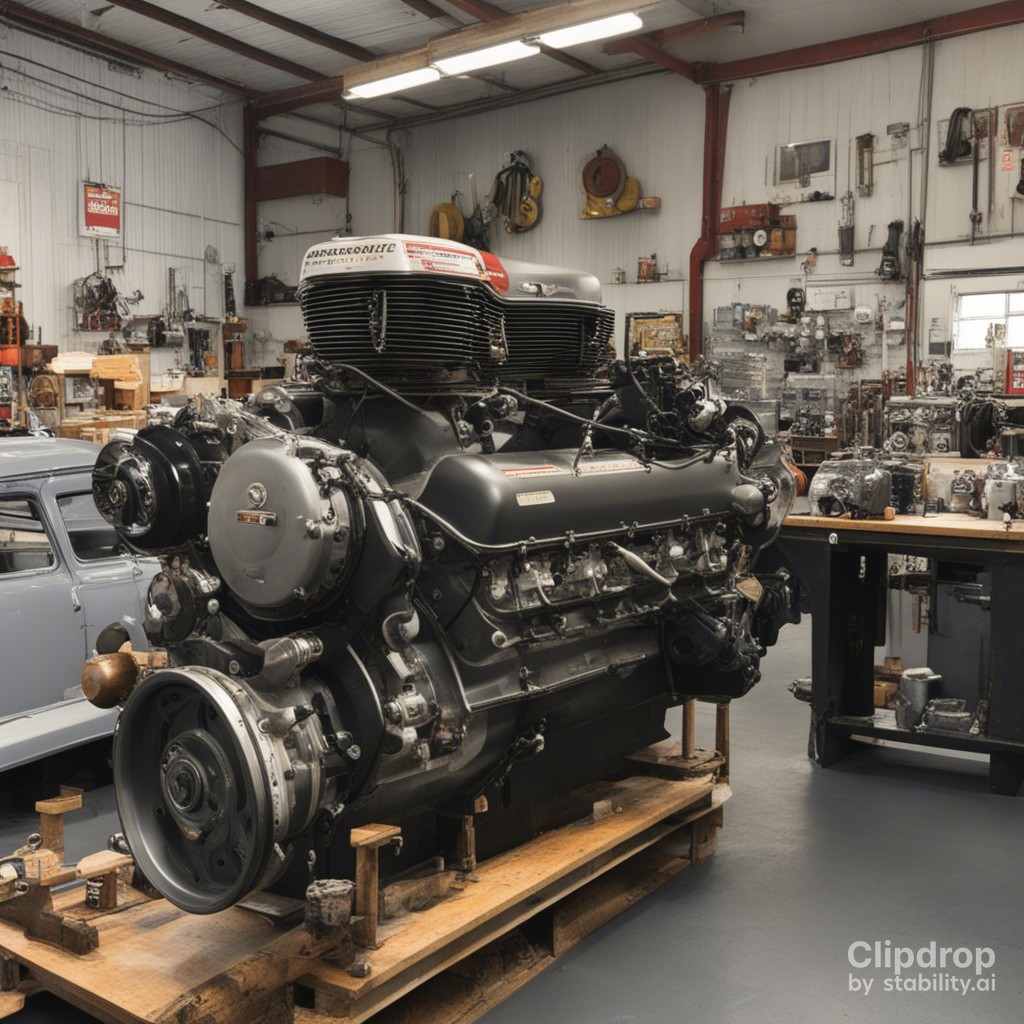Your Ultimate Guide to Buying a Used Car Engine

Are you standing at the crossroads of a vehicle dilemma, facing a worn-out engine or dreaming of a performance boost? The solution might lie in purchasing a used car engine, a cost-effective and eco-conscious choice. In this extensive guide, we will dive deep into all your queries, providing comprehensive answers to ensure a smooth journey in your quest for the perfect used car engine.
1. Where to Buy Used Car Engines?
Choosing the right seller is the first crucial step. Here are your options:
– Online Engine Retailers: Opting for online stores dedicated to used car engines offers the advantage of a vast selection at your fingertips. Research and choose sellers with a solid reputation, good customer reviews, and transparent return policies.
– Local Auto Parts Stores: Don’t forget to check with your local auto parts stores and junkyards. Many have a stock of used engines or can locate one for you.
– Salvage Yards: Salvage yards can be hidden gems for used car engines. Here, you can find engines from vehicles that were dismantled due to accidents, not necessarily because the engine was faulty.
– Private Sellers: Some individuals might be selling used engines directly. However, dealing with private sellers requires extra caution. Always thoroughly assess the engine’s condition and demand maintenance records.
2. How Much Does a Used Car Engine Cost?
The price range for used car engines is quite extensive, dependent on several factors. Expect to spend anywhere from $1,000 to $4,000 on average. High-performance or specialty engines will naturally be on the higher end of this scale.
3. How to Find a Reliable Seller?
Determining the credibility of a seller is paramount. Check for online reviews, ratings, and certifications. Don’t overlook the importance of warranties and guarantees, as they reflect the seller’s confidence in their products.
4. Used Car Engines for Sale Near Me
If you’re looking for used car engines nearby, ensure your search queries include phrases like “near me” or the name of your city or region. Local sellers might save you on shipping costs.
5. Tips for Inspecting a Used Car Engine Before Purchase
If you’re making an in-person purchase, a thorough inspection is crucial. Check for visible signs of wear, leaks, and damage. Ask for maintenance records to gain insight into the engine’s history and health.
6. What Should I Consider When Buying a Used Car Engine?
Ensure that the used engine is compatible with your vehicle. Match the make, model, and year for a perfect fit. Mileage and service history are critical considerations. Lower mileage and well-documented maintenance increase the engine’s desirability.
7. Used Car Engine Warranties and Guarantees
Always inquire about warranties and guarantees when purchasing a used engine. Some sellers offer limited warranties or guarantees to provide added peace of mind. Understanding the terms and coverage is essential.
8. Used Engines vs. Rebuilt Engines: Which is Better?
When it comes to used engines versus rebuilt engines, the choice hinges on your budget and risk tolerance. A used engine is taken from an existing vehicle, while a rebuilt engine undergoes reconditioning. Rebuilt engines typically offer a higher level of quality and reliability.
9. Reviews of Used Car Engine Sellers
Prior to making a purchase, delve into reviews and testimonials from past customers. A reputable seller should have satisfied clients willing to share their experiences.
10. How to Verify the Mileage on a Used Car Engine?
To confirm an engine’s actual mileage, request the Vehicle Identification Number (VIN) from the seller. Use a reliable service like Carfax to perform a mileage check.
11. Used Car Engine Installation Cost
The expense of engine installation is often overlooked. Acquire quotes from local mechanics to budget for this essential step.
12. Is It Worth Buying a Used Car Engine Online?
The world of online engine shopping is vast and convenient. However, ensure your seller is reputable. Investigate their online presence, customer feedback, and return policies to secure a successful online transaction.
13. Used Car Engines with Low Miles for Sale
Engines with lower mileage are typically preferred as they often have more life left in them. Low-mileage engines are more likely to be well-maintained and less prone to issues.
14. What to Look for When Buying a Used Car Engine?
While inspecting an engine, be on the lookout for visible wear, signs of leaks, and any potential damage. Verify that the engine matches your vehicle’s make, model, and year. Always explore warranty options with the seller.
15. How to Ensure the Used Engine is Compatible with My Vehicle?
To guarantee compatibility, provide the seller with accurate information about your vehicle’s make, model, and year. Reputable sellers will guide you in finding the engine that fits your car like a glove.
With this comprehensive guide, you’re ready to embark on your quest for the perfect used car engine. Take your
ETS offer reliable and quality used OEM parts, used engines, used transmissions and other used auto parts. Even the ones that are rare, and hard to find.